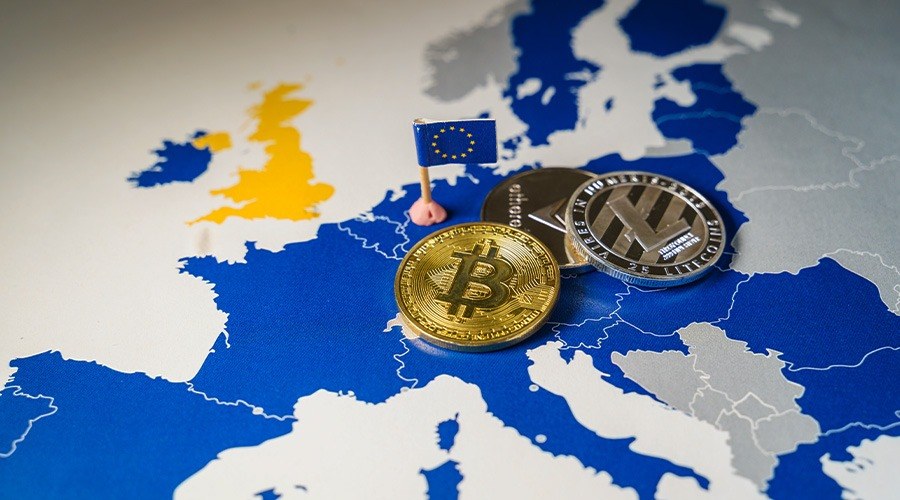Crypto has endured constant sniping and attacks through the years, denigrated, at times, as nothing more than a scam, a Ponzi scheme, or a shady conduit by which criminals can channel illicit funds. Is the crypto industry, in fact, a fraudulent enterprise whose only purpose is to enrich fraudsters and make life easier for lawbreakers?
If recent news is anything to go by, then we can safely answer in the negative, or, at least, we can state that the answer is not according to the EU. This is because on Thursday the EU Parliament formally passed MiCA regulation, which stands for Markets in Crypto-Assets regulation, and is a comprehensive bill covering the crypto industry, and which aims to take what is often seen as a highly risky wild west tech/finance hinterland and bring it within the regulatory fold.
Mattias Levin of the European Commission's Digital Finance Unit stated that MiCA would
“address the concerns to consumers, market integrity and financial stability. It would do so by regulating the issuers of crypto assets, including stablecoins. It will also regulate the vast universe and ecosystem out there in terms of crypto assets service providers … and as a result, we will have a safe and sound framework that will allow these markets to develop on a sound footing.”
He also added:
“This is the first comprehensive piece of regulation of crypto assets in the world, and we hope and trust that other regulators will follow suit, which will be important to address the risks fully of these markets that are global in nature.”
A Groundbreaking Moment
Although the bill is likely to evolve and be adapted according to necessity in future, crypto is after all a young inventive and rapidly expanding sector, which has a tendency to challenge existing orthodoxies. From a wide perspective, MiCA looks like a genuinely groundbreaking moment in the evolution of cryptocurrencies.
What we can observe is crypto being regarded not with suspicion, but as a meaningful industry with real utility, and one that should be allowed to develop further, and that should be able to do so not in opposition to current markets and mechanisms, but, if possible, integrated with and alongside existing structures.
A telling and, for those involved in crypto, hugely encouraging part of Levin’s statement, is his mention of crypto being “global in nature,” alongside a hopeful belief that other regions “will follow suit” after the EU.

Setting a Global Path
Crypto is, by its nature, a borderless system, and those advocating for crypto and its potential virtues understand that the more countries and regions that begin to accept and utilize it, the more those who remain cautious will be gently pressured into reconsidering their stance.
This is particularly relevant at the moment, as it continues to seem, for practical intents and purposes, that US authorities are looking not at how to regulate crypto, but rather, at how to stop it from operating altogether, with Democratic Senator Elizabeth Warren openly stating last month that she was “building an anti-crypto army.”
As attitudes outside the US take precisely the opposite approach to what is, after all, simply a new kind of financial technology, the kind of bellicose rhetoric employed by Senator Warren begins to look eccentric and, increasingly, unsustainable, particularly in a country that one might have expected to be ahead of the curve when it comes to enabling innovation.
I have to say this is not the path I expected. 2 years ago the USA was vastly ahead of UK/EU in full ecosystem infrastructure.
— 6529 (@punk6529) April 19, 2023
I still struggle to imagine UK/EU taking lead tbh, but I guess stranger things have happened in world history https://t.co/CptvfJP6GE
Relatedly, this all comes as the largest US-based crypto exchange, Coinbase, has obtained a regulatory license to operate in Bermuda and posted plans to take a global approach to expansion with regional attitudes to regulation clearly in mind. It has been a week since the Coinbase CEO, Brian Armstrong, was in London for UK Fintech Week and reportedly stated, in answer to a question from the former Chancellor of the Exchequer, George Osbourne about whether Coinbase might leave the US, “anything is on the table, including relocating or whatever is necessary.”
Great meeting today with UK Economic Secretary and City Minister @griffitha.
— Brian Armstrong (@brian_armstrong) April 17, 2023
The UK is moving fast on sensible crypto regulation to both drive economic growth AND consumer protection. Excited to keep investing in the UK. 🇬🇧 pic.twitter.com/478PQSLmDe
And, on top of all that, there was news that The Bank of Russia is planning to allow the use of cryptocurrencies in cross-border payments, while setting up officially authorized organizations for the purpose of mining crypto, although that said, crypto trading and domestic crypto payments remain prohibited in Russia. Nonetheless, it’s apparent that crypto itself is a neutral technology, and is likely to be utilized and adapted in a variety of ways, globally.
A knee-jerk reaction to the multiple crypto catastrophes of 2022, starting with the collapse of Terra/Luna, and culminating in the downfall of FTX, would have been to declare that all of crypto, the entire industry, its many diverse participants, and the base concept of the tech, was a terminal hazard that should be rejected wholesale.
On the other hand, a more nuanced and level-headed observation would have been that the turmoil and damage wrought in 2022 indicated not that we should pay less attention to crypto, but rather, that we focus more closely, and evaluate what steps are required to reduce risk and accelerate beneficial developments. With the passing of MiCA, it appears that in the EU, this more balanced mindset has now been formalized.






















